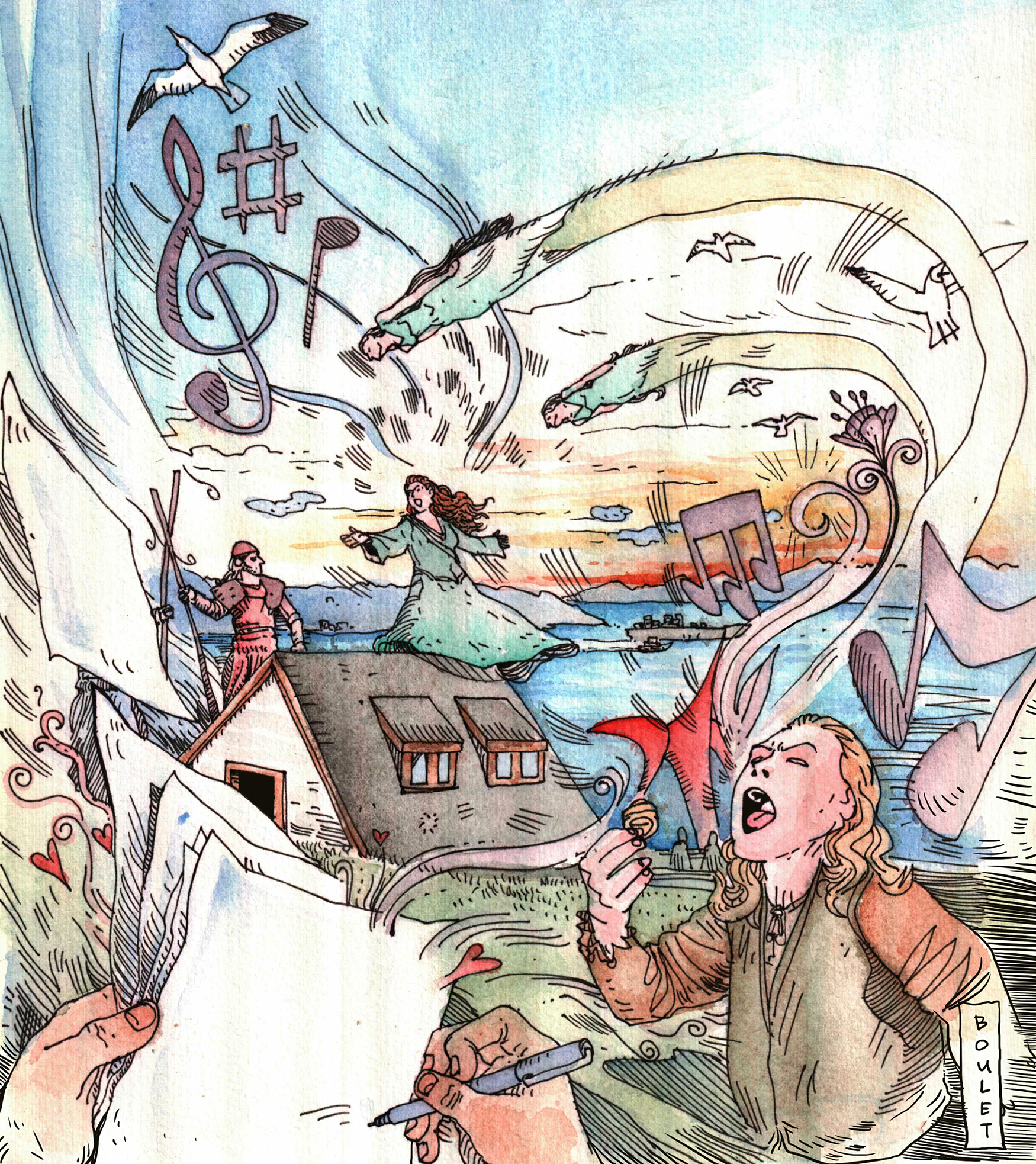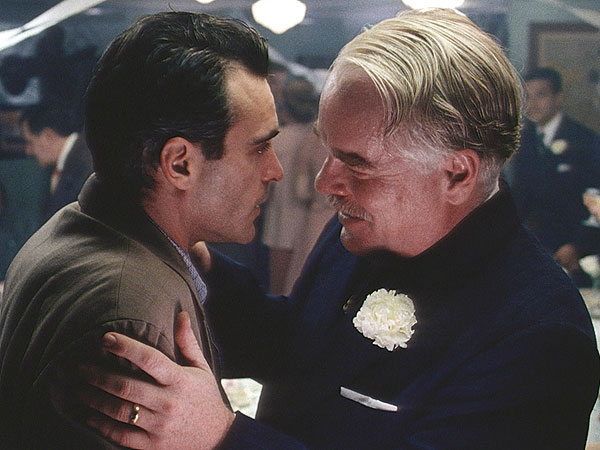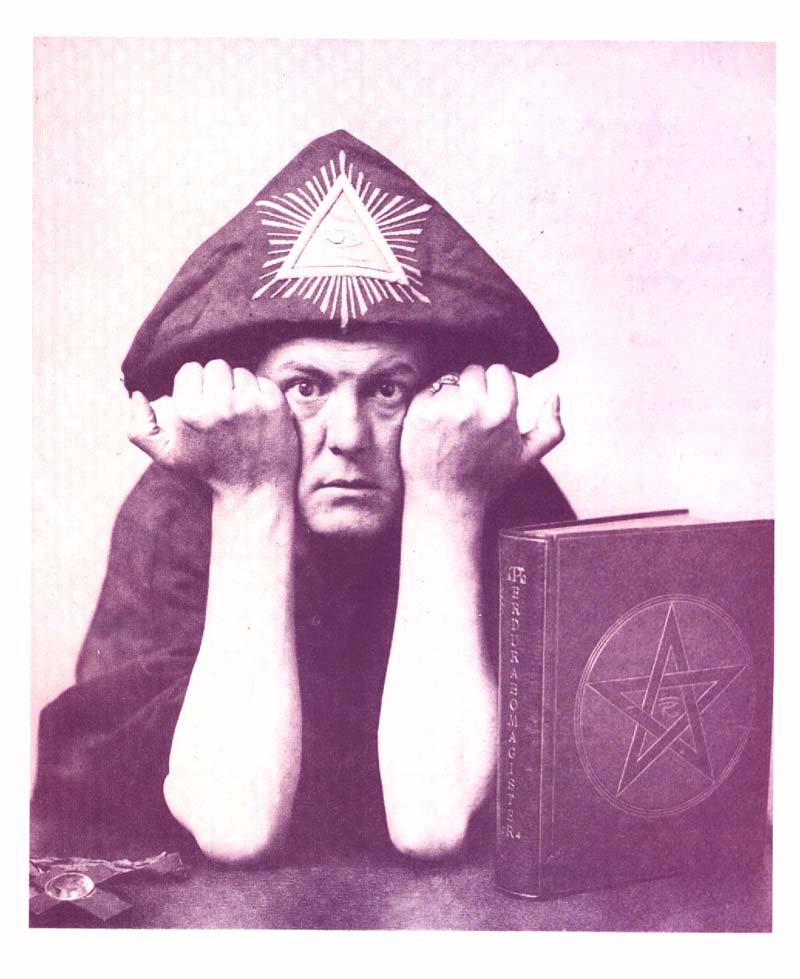WEDNESDAY, MAY 23
Unforgivable/6:30 p.m., Harvard Exit
Unforgivable? Interminable is more like it. Veteran writer/director André Téchiné (The Witnesses, The Girl on the Train) employs a kitchen-sink approach to this overstuffed Venetian soap opera. He assembles a dozen characters around blocked French novelist Francis (André Dussollier), then has them enact every random scene that’s been cluttering his desk drawers for the past 30 years: suicide attempts, impulsive proposals, private detectives hired to spy on spouses, aristocrats turned to drug dealing, low-speed boat chases through the canals, a sex tape sent to Daddy, alcoholism, Schopenhauer citations, parents lamenting that they had kids, fatal disease, something about queer-bashing, and a colorful peasant wedding where everybody sings by the reeds on the beach. Also, Francis gets a book written by the end, so that he and Téchiné can feel that all this strife and melodrama have had a purpose. Trust me, they don’t. Venice is always scenic, but Unforgivable is such a frantic, busy picture that we’re never allowed to consider the cause of Francis’ jealous nature. His possessiveness alienates both his grown daughter and second wife (the cryogenically preserved Carole Bouquet), who snaps, “The more I know you, the less I know who you are.” Strangely, Téchiné is no better informed than she. BRIAN MILLER (Also 3:30 p.m. Thurs., May 24.)
[PICK] Bonsái/8:30 p.m., Harvard Exit
The bookish young lovers at the heart of Bonsái have cultivated an almost militant seriousness when it comes to literature and a dismissive attitude toward everything else—including, eventually, each other. Both are too terrified to admit they haven’t read Proust, and a short story by the Argentine writer Macedonio Fernández practically dooms the whole romance. “Blah blah blah,” responds Emilia (Nathalia Galgani) early in the film when Julio (Diego Noguera) tells her she looks pretty. This is one of two formative relationships examined in Bonsái, adapted by Chilean director Cristián Jiménez from a prize-winning 2006 novella. Both involve Julio, and both are mediated by the written word as Jiménez jumps between the present day, in which our protagonist has begun a placid romance of convenience with older neighbor Blanca (Trinidad González), and eight years prior, when he and Emilia were together at college. A story within the stories materializes. Stuck in what appears to be a protracted post-collegiate lull, Julio informs Blanca that he has been hired to type up a novelist’s latest opus. Meanwhile, the author, Gazmuri, chooses to hire another applicant for the job. Instead of confessing the truth to Blanca, Julio starts writing the Gazmuri novel himself, a text that evolves, despite the displaced credit, into something resolutely his own: a veiled account of his relationship with Emilia. A kind of poetry sprouts up even in some of the inevitable sad-twee flourishes here, and Jiménez transplants the meta material from novella to screen with surprising success. BENJAMIN MERCER
[PICK] King Curling/9:30 p.m., SIFF Cinema Uptown
This Norwegian curling comedy . . . but why go on? You’ve already decided whether or not to see it. Actually, you already have, since Kingpin, Dodgeball, Blades of Glory, and related sports-movie parodies have replaced the actual sports movies that no one makes anymore. Truls Paulsen (Atle Antonsen) was a champ in the ’90s, but his mind snapped under the weight of his obsession with the sport. Released after a decade of institutionalization, he’s stuck in a drone job (and in his wife’s emasculating pink house) until his mentor falls ill and needs an expensive lung operation—and yes, Truls Gets the Team Back Together for one last lucrative competition. The plot could not be more rote, but the film’s so saturated, scene by scene, line by line, with deadpan ridiculousness that you have to wonder if it’s only coincidence that Antonsen so resembles John C. Reilly and his archrival Stefan (Kare Conradi) looks and acts a lot like Semi-Pro-vintage Will Ferrell. Is King Curling a deliberate premake intended to lure an American adaptation that could only pale in comparison? Is our stupid-comedy hegemony being threatened by Norway? GAVIN BORCHERT (Also 4:30 p.m. Wed., May 30, and Egyptian, 9:45 p.m. Sat., May 26.)
THURSDAY, MAY 24
Bull Runners of Pamplona/6:30 p.m., Harvard Exit
What a schizophrenic documentary from director Aubrey Powell. The interviews with over-testosterized Aussie and American Hemingway worshippers—all dudes—who get hammered and cheat death by running with bulls down the crowded streets of a small town in Spain are mundane and off-putting. Scenes that focus on bull-rearing and bullfighting protesters are as dry as BBC toast. But the depiction of the bull-running itself exists in what appears to be another film entirely, and a spectacular one at that. The cinematography is riveting. It’s tantamount to an ace sports film trapped in a stuffy library conference room, and should be required viewing for any loon who thinks there’s no chance he’ll get the guts gored out of him by the lethal beasts. MIKE SEELY (Also 11 a.m. Sat., May 26.)
Headshot/9 p.m., SIFF Cinema Uptown
Thailand’s Pen-ek Ratanaruang, a former SIFF “Emerging Master,” made his reputation with a series of stylish, violent, and oddly contemplative crime thrillers including 6ixtynin9 and Last Life in the Universe. He returns to his strengths with this self-styled “Buddhist film noir.” Shuffling crime genre elements with philosophical musings (“Justice does not exist in nature,” ponders our tormented hero) and a quest for truth in a world of lies and manipulations, Ratanaruang comes up with a twisty, enigmatic tale about a contract killer with a complicated backstory and a unique perspective. Thanks to a bullet in the head (just one of the film’s many head wounds), he sees everything upside-down, which puts him at a real disadvantage in a getaway but doesn’t affect his accuracy. Headshot is designed to obfuscate, slipping back and forth through flashbacks and enigmatic visions, often shuffled out of order. This keeps us guessing about what’s really happening to the enigmatic, oddly passive Tul (Nopporn Chaiyanam). Filled with assassins, patsies, and contemplative detours, Headshot is either a very violent Buddhist parable or an almost-too-clever conspiracy tale. Perhaps confusion is the path to enlightenment. SEAN AXMAKER (Also Pacific Place, 4 p.m. Sun., May 27.)
FRIDAY, MAY 25
[PICK] El Gusto: The Good Mood/1:30 p.m., Pacific Place
Chaabi (from the Arabic chaab, “people”) was the indigenous popular music, intricate and passionate, of the Casbah, the crowded, crumbling old quarter of Algiers: “a cocktail,” as one musician describes it, “of Berber music, religious chants, and Andalusian music.” It was played by equally multiculti orchestras: lutes, guitars, and banjos en masse, plenty of percussion, and a few violins (played upright, resting on the lap) and other Western instruments—a rich musical stone soup of whatever was at hand. Huge after WWII, chaabi penetrated all reaches of society, played nonstop in cafes and brothels, on the radio, at family gatherings. But it was squeezed out as Algeria began to fight French rule, caught, ironically, between the colonizers who respected it and the revolutionaries who had no time for it: “No parties, weddings, circumcisions—nothing!” remembers one ex-star. The euphoria of independence, won at last in 1962, brought a brief final flowering, but the death blow was the resulting forced exodus of Europeans, including the Jewish musicians in the Casbah who’d mixed with Muslims without friction. After decades of silence, director Safinez Bousbia, following a chance encounter with a cabinetmaker/former bandleader, began to research chaabi history, arranging a reunion of elderly musicians to tour France and filming them. Yes, it’s pretty much a Saharan Buena Vista Social Club, but with a musical genre even more obscure over here and a story, therefore, that much more fascinating. Here’s hoping El Gusto‘s rousing soundtrack also sells millions. GAVIN BORCHERT (Also 6:30 p.m. Sun., May 27, and Everett, 6 p.m. Wed., May 30.)
The Last Man on Earth/3:30 p.m., Harvard Exit
Last fall, a video of Italian journalist Maria Cuffaro became a YouTube sensation. In the clip, the grave-faced Cuffaro reads from a news bulletin to warn of an imminent extraterrestrial invasion. Sadly for end-timers, the video was a clever publicity stunt for Gian Alfonso Pacinotti’s L’ultimo Terreste, a film about the world agog and preparing for an alien visitation. Who’s already getting abducted? Who’s afraid? Who’s excited? Luca (the astonishingly fragile Gabriele Spinelli) is a painfully shy middle-aged bingo-hall waiter. His co-workers are buffoons who like to stick their camera phones under their customers’ skirts; his only friend is a stately transsexual prostitute named Roberta (Luca Marinelli); and he has a crush on his neighbor, Anna (Anna Bellato), whom he spies on with binoculars from his balcony. Meanwhile, Luca’s widowed father (Roberto Herlitzka) has secretly started cohabiting with a bug-eyed, silver-breasted alien—he teaches her how to plant tomatoes, pats her cheek fondly, and calls her “sweetie.” Awkward Luca’s tale would seem irrelevant compared to the momentous alien arrival, yet Pacinotti brings the two strands together with a surprisingly tender coda. ERIN K. THOMPSON (Also 6:30 p.m. Mon., May 28 and 4 p.m. Thurs., May 31.)
Paul Williams Still Alive/6:30 p.m., Egyptian
More than 40 years after the Carpenters made Paul Williams’ “Rainy Days and Mondays” a hit, the flamboyant songwriter, performer, and once-ubiquitous late-night personality is . . . defending the rights of 450,000 songwriters as the head of ASCAP? And what? He’s writing music for the next Daft Punk record? These two factoids should be enough to perk the interest of even a casual fan of the man who wrote “Rainbow Connection” for The Muppet Movie in 1979—yet neither are explored in this documentary. Instead we get manufactured drama about a potentially dangerous but completely benign trip to the Philippines and reality-TV-grade events like director Stephen Kessler asserting that Williams’ wife is ruining his and Williams’ trip. One could blame poor timing. But the more likely reason is that Kessler didn’t want to make a documentary that explores the complexities of Williams’ career, from in-demand ’70s celeb to has-been addict, now clean and again approaching cultural relevance. Kessler, it turns out, wanted to make a film about how much he loves Paul Williams. “And then it happened,” Kessler says toward the end of the film, “Paul gave me what I always wanted: a sleepover.” Williams is ripe for documentary treatment in 2012, but Still Alive doesn’t do its subject justice. CHRIS KORNELIS (Also SIFF Cinema Uptown, 1 p.m. Sat., May 26.)
The Other Dream Team/8:30 p.m., Harvard Exit
In 1992, Lithuania participated in its first Olympics as a sovereign country. Its basketball team featured a number of marquee players from the old Soviet team that defeated the U.S. in ’88, but had very little money for the Barcelona games. Having defected a few years earlier to play for the Golden State Warriors, star Lithuanian guard and ex-Sonic Sarunas Marciulionis helped convince the Grateful Dead to finance his team’s journey. The band’s generosity extended to the creation of tie-dye warmup shirts that the Lithuanians wore on the (bronze) medal stand, upstaging the gold won by America’s “Dream Team.” Featuring interviews with the likes of Bill Walton, Mickey Hart, and David Remnick, Marius Markevicius’ Sundance-selected documentary has all the makings of a stellar addition to ESPN’s 30 for 30 series, and that’s where it may end up. But it could use a fresh edit first: While Lithuania’s struggle for emancipation is critical to the story, Markevicius spends far too long recounting it, and his baffling decision to incorporate current basketball prospect Jonas Valanciunas into the picture eats up even more screen time that would have been better devoted to the games themselves, a section that seems hurried in the current cut. MIKE SEELY (Also 3 p.m. Sun., May 27 and 9 p.m. Thurs., May 31.)
SATURDAY, MAY 26
Step Up to the Plate/1:30 p.m., Egyptian
In 2009, Michel Bras decided to gradually retire from his legendary restaurant in southern France, a decision that might doom many Michelin three-star restaurants. But Bras planned to bequeath the restaurant to his son, Sébastien, just as his mother had given it to him. The turnover marks a happy new start for the kitchen, as Step Up to the Plate‘s many scenes of Sébastien contemplating sunrises make clear. “I think Sébastien will be at his best when Michel actually retires,” a longtime friend says in this French documentary chronicle of the year leading up to Sébastien’s assumption of the head chef’s toque. Sébastien sometimes struggles to match his father’s innate artistry—”I don’t understand you,” he says when Bras outlines a seed-oil concoction—and headstrong attitude, but he harbors none of the unspoken resentment that pollutes the father/son relationships in Jiro Dreams of Sushi, another recent doc about a great chef nearing the end of his career. Paul Lacoste’s film is a sweet, leisurely paced tribute to family. Answering a typically Gallic question from an unseen French reporter, Sébastien says, “As I was saying, it’s not a revolution.” HANNA RASKIN (Also 6:45 p.m. Tues., May 29, and Kirkland, 6:30 p.m. Fri., June 1.)
Coming Home/6:30 p.m., Harvard Exit
So soon after the Austrian Michael, we have another creepy drama about a kidnapped child imprisoned in a basement dungeon. This time the country is France, the child is a girl, and the time frame is much longer: eight years, the same duration of the notorious Natascha Kampusch abduction revealed in 2006. Directed by Frédéric Videau, Coming Home also suggests the missing-girl tabloid frenzy of Madeleine McCann, who disappeared the following year; there’s evidently a pan-European dread about the subject. Gaëlle (Agathe Bonitzer) gets free almost as soon as we meet her, for reasons gradually explained in many flashbacks and temporal leaps among her mother’s house, a mental ward, and the rural home of kidnapper Vincent (Reda Kateb). “I’ll never touch you,” he insists to Gaëlle at age 10 (played by a child actress). Later, her mother asks about rape, but Gaëlle shrugs off the subject. A self-pitying loner (“I only have you to talk to”), Vincent is borderline-fatherly, supplying his prisoner with her favorite foods, home-schooling her, even teaching her to drive late at night. Pseudo-parental control is as much his obsession as sex. We assume the worst, but never see it; and Coming Home does bog down in its many ellipses. For her part, Gaëlle’s identity—which adolescence would’ve scrambled anyway—is forever shattered: she dyes her hair, rebuffs her divorced parents, and rejects her therapist. Their authority is Vincent’s authority, a force to be resisted or escaped. BRIAN MILLER (Also noon, Sun., May 27, and SIFF Cinema Uptown, 9 p.m. Tues., June 5.)
[PICK] The Snows of Kilimanjaro/8:30 p.m., Harvard Exit
All Robert Guédiguian movies tend to blur together: the same working-class Marseilles setting; the same ensemble of acting talent (led by his wife, Ariane Ascaride); the same score, vintage American R&B; the same concern with defending one’s humanity against the socioeconomic tide. But Snows—which borrows its title from a French pop tune, not Hemingway—is something of a fairy tale, a more focused and affirmative work than Lady Jane or The Town Is Quiet. Union leader Michel (Jean-Pierre Darroussin) loses his job at the port, in a lottery where he draws his own name from a hat. These “voluntary” labor concessions also affect a young co-worker, who’ll later rob the house of Michel and his wife of 30 years, Marie-Claire (Ascaride). The robbers wear masks, but Michel is clever: He spots a clue, investigates, and hopes to recover their stolen 5,000 euros. What he and Marie-Claire find, however, is that the robber is supporting two boys—his much younger half-brothers. So with all his talk of socialist solidarity, what is Michel to do? He has a reflexive horror of the middle class, but that’s the life he’s earned for his wife, kids, and grandchildren—in today’s Europe (or America, for that matter), a contented future the thief and his brothers may never have. “He’s a worker like us,” Michel says of the robber. He reconsiders his anger over the crime, and the movie ends with an O. Henry twist that you don’t have to be a socialist to love. BRIAN MILLER (Also noon, Mon., May 28, and Egyptian, 4 p.m. Fri., June 1.)
ELIMINATE: Archie Cookson/9 p.m., Everett
To be fair, this movie was probably brewing long before the release last autumn of Tinker Tailor Soldier Spy, so its immersion in vintage John le Carré espionage tweeds is merely coincidence. Plus, plenty of British directors are obsessed with the old textures of MI6 and the faded glories of the Cold War years. However, Rob Holder’s spy comedy strikes an unwieldy, unsuccessful balance between that heritage and present reality. Drunk and divorced, Russian linguist Archie (Paul Rhys) uses reel-to-reel tape recorders like it’s the early ’70s and the Soviets still matter. He drives to work in a mustard-colored Reliant Scimitar, considered quite exotic when Harold Wilson was prime minister, but the cars around him are all modern. When some incriminating tapes arrive on Archie’s desk, his treacherous bosses order him killed by cell phone. None of this temporal dissonance makes any sense, and Archie isn’t much of a comic hero—less a clown than Johnny English, meeker than OSS 117. “I think I’m way out of my depth,” he confesses. Even if he finally hardens up a bit, ELIMINATE never finds a satisfactory tone. For a better English treatment of past/present disjunction, rent the BBC series Life on Mars, which had two seasons to explore its hero’s dilemma. Here, Archie never really gets the chance. BRIAN MILLER (Also Egyptian, 11 a.m. Mon., May 28 and 9 p.m. Tues., May 29.)
[PICK] Gimme the Loot/9:15 p.m., Pacific Place
As they complain about HBO’s Girls today, as people have long complained about Woody Allen, New York isn’t a city comprising only neurotic white people whining about their relationship troubles on the sidewalk. Adam Leon once worked on Allen’s sets as a PA, and he clearly heard those complaints. His promising debut feature follows two teen graffiti artists from the Bronx to Manhattan and back during one long summer day. Malcolm (Ty Hickson) has a plan to “bomb” (paint, tag) Shea Stadium, home of the hated Mets. Sofia (Tashiana Washington) points out that they lack the $500 necessary to bribe the stadium groundskeeper. What follows is a charming, picaresque adventure to gather the loot—petty efforts at crime that invariably result in comic bungling and blame. (“Google how to pick a lock!”) During its course, Malcolm loses his sneakers and pot-courier job, Sofia loses her bike, and both begin to sense feelings stronger than their fellowship in Krylon. Although they can explode into mighty fits of trash-talking (to both each other and rivals), there’s no real heat to these tirades, their words as exaggerated and colorful as their graffiti lettering. Long walking-and-talking scenes with Malcolm and Sofia do recall Allen, but this is Spike Lee’s city, with white privilege on the periphery. Leon doesn’t insist this is a life-changing day for his two teens, but it’s an odyssey of small, meaningful moments. BRIAN MILLER (Also 4 p.m. Mon., May 28.)
SUNDAY, MAY 27
The Revolutionary/5:30 p.m., Harvard Exit
Now 90 and living near Gig Harbor, Sidney Rittenberg was a proud young leftie learning Mandarin in the U.S. Army during World War II. But the war ended, he got attached to the U.N., and, during an assignment to revolutionary China, he threw in his lot with Mao and joined the Communist Party. He would spend 34 years there, serving as a Party spokesman, marrying twice, and enduring two periods of solitary imprisonment (16 years total). It’s an amazing life story, well told through interviews, stills, and newsreel footage by Irv Drasnin and Bainbridge-based Lucy Ostrander and Don Sellers. All three are veterans of public television, and it shows. Rittenberg’s ambitions (“I’m getting to be a part of history”) and regrets are clearly laid out, with graphics, intertitles, and wonderful old Communist posters to evoke the era. Rittenberg is generously quoted and given considerable benefit of hindsight: “Once you get into power,” he says, “civil rights becomes your enemy.” Prison and the Cultural Revolution clearly dimmed his idealism, and he left China in 1980, back home becoming a consultant to Microsoft and other companies. So why Rittenberg, why now? The Revolutionary would’ve been more timely before China’s economic boom, when the damage of the Cultural Revolution was still fresh. Of today’s Baidu-connected young Chinese, says Rittenberg re that history, “They don’t know.” BRIAN MILLER (Also Pacific Place, 4:30 p.m. Thurs., May 31.)
Liberal Arts/6 p.m., SIFF Cinema Uptown
Taking all three jobs as writer/director/star, it shouldn’t be surprising that Josh Radnor is way too kind to his 35-year-old character, Jesse, who falls for a college girl during a trip back to his Ohio alma mater. He’s there to celebrate the retirement of his “second favorite professor” (Richard Jenkins); the favorite is played by Allison Janney. Upping the talent ante even further is Martha Marcy May Marlene star Elizabeth Olsen as the crush object, Zibby, but Radnor/Jesse is concerned only with himself. The bookish Brooklynite needs to grow up, you see, to leave behind his collegiate obsessions (David Foster Wallace chief among them) and self-image. This means Yoda-esque counsel from a campus stoner (Zac Efron, way too broad) and an epistolary romance with Zibby, because Facebook and cell phones don’t exist. There’s even a suicidal bookworm who reminds Jesse exactly of himself at that age! (Double the Jesses, double the salvation?) Radnor, from TV’s How I Met Your Mother, isn’t entirely dismissive of those in Jesse’s concentric orbit, but he gives each of them one generous scene, then lets them spin away, forgotten. Liberal Arts is all about Jesse, all the time, but he’s not flawed or neurotic enough to be genuinely interesting. The movie’s funniest scene has him doing the numbers on a sheet of paper: 35 – 19 = 16 years age difference. No way, dude! But then he varies the calculation: 50 – 34 doesn’t sound so bad! Woody Allen wouldn’t even bother with the math. Behaving worse would’ve made Liberal Arts a better comedy. BRIAN MILLER
Guilty/8:30 p.m., Harvard Exit
Crucially, the full French title of this true-life docudrama is Presumed Guilty (or Présumé Coupable), which indicates some profound differences between France’s legal system and our own (not that we’re perfect, either). A decade ago, wild allegations of child sex abuse—by an abuser on trial herself—led to the arrest of a dozen individuals including Alain Marécaux, a married father of three. His wife is also arrested and their kids sent to foster care. What follows, as director Vincent Garenq adapts Marécaux’s memoir, is a wrong-man nightmare within the annals of a system where Marécaux ironically once worked as a bailiff. Part of what makes his ordeal gripping is also what makes it confusing to watch: Lost in the courtrooms and prison cells, without benefit of explanatory titles, we have little idea how much time has passed or where the next appeal or ruling will take poor Marécaux (convincingly played by Philippe Torreton). The calendar is torn up, like his family, and his hunger strikes and suicide attempts further dissociate us from the rational world outside. Inside the halls of justice, an arrogant young prosecutor has near-supreme power over whether to charge Marécaux and how long to hold him (three years, we learn in the postscript). In a real sense, we share the same cruel uncertainty and tedium. In the end, exoneration feels less like victory than exhaustion. BRIAN MILLER (Also 9:30 p.m. Mon., June 4, and SIFF Cinema Uptown, 4:30 p.m. Tues., May 29.)
How to Steal 2 Million/8:30 p.m., SIFF Cinema Uptown
Setting a film noir in the present day is always tricky, and at first this compact South African heist movie pulls off that trick. Wearing an old-fashioned suit and tie, Jack (Menzi Ngubane) emerges from prison and blows what looks to be 50 years of dust off his vintage sedan. Promising: a man from the past. But Jack’s only been in jail five years, and How to Steal gradually steers toward modern crime-flick clichés. “There’s no salvation for the bad,” says the generally terse Jack, who reluctantly agrees to pull a robbery on behalf of his old pal Twala (now married to Jack’s old girlfriend, meaning trouble). That heist, we can all predict, will go bad, but there’s satisfaction in getting there. Young first-time director Charlie Vundla, an American based in Johannesburg, gives his film a stylish, retro polish—somewhere between Michael Mann and The Asphalt Jungle. Ngubane has a pent-up, watchful strength; he’s a bit like Ving Rhames, only 50 pounds lighter. And the dialogue shifts very naturally and enjoyably between English and Zulu, with impeccable subtitles for the transitions. It’s this hybrid quality, the melding of disparate genres and cultures, that makes How to Steal a valuable debut. BRIAN MILLER (Also 3:30 p.m. Tues., May 29, and Harvard Exit, 8:30 p.m. Thurs., May 31.)
Best Intentions/9 p.m., Harvard Exit
As we know from Cristi Puiu’s 2005 The Death of Mr. Lazarescu, when a Romanian falls ill and enters a hospital, only bad things can result. Fortunately, director Adrian Sitaru has other things on his mind than suffering and death in Best Intentions. The film begins in Bucharest, where Alex (Bogdan Dumitrache) sits pecking at his laptop. He has a cute girlfriend and a decent apartment, but all that is forgotten with a call informing him his mother has suffered a stroke. He races to the provincial hospital where she shares a ward with three other women. (One, her face disfigured in a car crash, wears a bunny mask.) For the next several days, Alex, his girlfriend, and his father debate this half-lucid woman’s treatment with doctors and staff. Sounds like a standard medical drama, but here’s what the movie’s really about: Frightened and confused by the situation, only child Alex is swayed by the opinions of pretty much anyone who addresses him. To literalize those feelings, Sitaru constantly shifts the camera’s perspective among those around Alex. In long takes, usually one per scene, the camera is the mother, the nurse, the doctor, the girlfriend, and so forth. As he argues, listens, agrees, and complains, Alex is effectively having a movie-long conversation with us. In Sitaru’s Hooked, seen at SIFF ’09, he also played with POV, but only with three characters. Here, the prism is an analogue to the oversupply of modern medical information: too many options, too many factors to consider, and Alex is only one man—isolated against the onslaught. If you’ve ever been bedside in a hospital, the cacophony will seem familiar. BRIAN MILLER (Also SIFF Cinema Uptown, 2 p.m. Sat., June 2.)
TUESDAY, MAY 29
Policeman/9 p.m., Pacific Place
Two separate movies collide here, and though a bunch of bodies are finally left on the floor, I’m not sure which one wins. First there’s the Israeli-cop component: Yaron (Yiftach Klein) and his hard-bodied bros on the counterterrorism squad. Though he’s tender with his pregnant wife and close to his Tel Aviv family, Yaron seems most comfortable with an all-male cohort: biking in the desert, wrestling on the grass, covering up possible misdeeds, planning their next mission. Opposite them are a spoiled group of bourgeois revolutionaries, a much more interesting group. Here the charismatic alpha dog is Natanel (Michael Aloni), with Shira (Yaara Pelzig) hopelessly in love with him. (She’s the movie’s Patty Hearst figure.) Weirdly, writer/director Nadav Lapid doesn’t intercut between the two camps, the standard editing strategy for suspense. Instead, they occupy separate chapters before a short, decisive convergence at the high-rise wedding of a tycoon’s daughter. The terror cell suggests both the Red Brigades and Occupy Wall Street: These are the sons and daughters of privilege, angered by class inequality. Is Israel really that divided? Are left-wing students really such a menace? The cops don’t seem to think so. When assigned their targets, one grouses, “This son of a bitch isn’t even an Arab!” BRIAN MILLER (Also 9 p.m. Mon., June 4, and SIFF Cinema Uptown, 3:30 p.m. Wed., June 6.)









